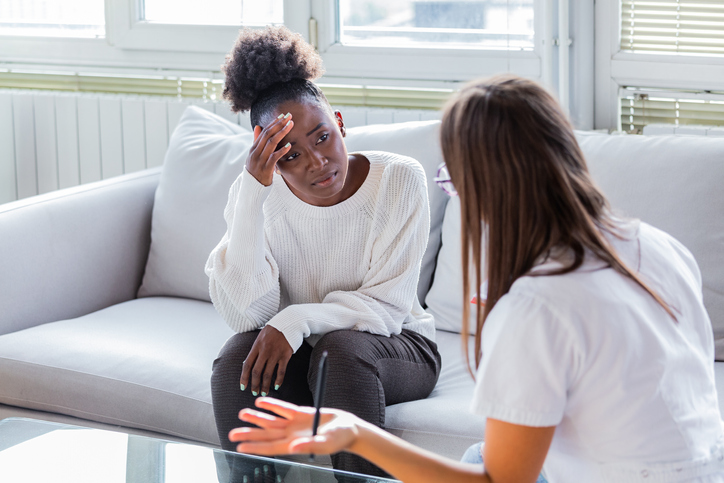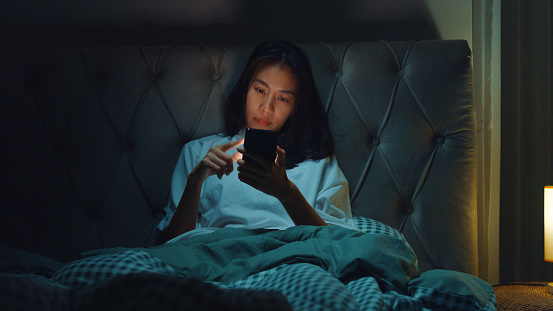Picture this: It’s Friday night, and your phone buzzes with an invitation to a party. If you’re an introvert, your stomach might do a little flip, and not in a good way. But why do we introverts often dread these social gatherings, and what’s the deal with actually enjoying them sometimes? Let’s take a look.
1. It drains their energy

Introverts often view social gatherings as a massive drain on their energy reserves. The mere thought of hours of interaction can feel exhausting before the party even begins. It’s kind of like running a marathon when you’re used to quiet walks in the park.
Why they have fun anyway: Surprisingly, introverts find that the right conversation or activity at a party can be energizing rather than draining. When they connect with someone over a shared interest or engage in a stimulating discussion, they might tap into a reserve of social energy they didn’t know they had.
2. They dread small talk

The prospect of hours of surface-level chit-chat is enough to make any introvert want to hide under their bed. Questions like “What do you do?” and “How about this weather?” can feel painfully superficial and draining.
Why they have fun anyway: Occasionally, what starts as dreaded small talk evolves into a deeper, more engaging discussion. An introvert might find themselves pleasantly surprised when a casual comment about the weather turns into a fascinating conversation about climate science or local history.
3. They’re easily overstimulated

Parties often mean sensory overload for introverts. The noise of multiple conversations, loud music, and constant movement can feel like an assault on the senses.
Why they have fun anyway: Sometimes, introverts discover a quieter corner or outdoor space at the party where they can enjoy the atmosphere without feeling overwhelmed. This oasis allows them to participate on their own terms.
4. They fear awkward silence

Many introverts worry about running out of things to say, leading to those dreaded crickets. The fear of standing there, drink in hand, frantically searching for something—anything—to say can be paralyzing.
Why they have fun anyway: As the night progresses, introverts might realize that comfortable silences can exist, even at parties. They could find that watching the party unfold can be enjoyable in itself. These moments of peace can be surprisingly refreshing.
5. They feel like they have to be “on”

Introverts often feel immense pressure to be constantly social, smiley, and upbeat at parties. The expectation to be “on” for hours on end can feel like preparing for an exhausting performance.
Why they have fun anyway: As the party unfolds, introverts might find that others appreciate their thoughtful responses or calm presence. This realization that they can be themselves can make the party more enjoyable.
6. They’re worried about having limited escape routes

Introverts often feel anxious about being “trapped” at a party with no easy way to leave when they feel overwhelmed. The idea of being cornered in a conversation or unable to exit gracefully can make them not want to attend at all.
Why they have fun anyway: Maybe they discover that the party venue offers unexpected “escape routes,” like a quiet balcony, a less crowded room, or even a friendly pet to interact with. These safe spaces allow them to take short breaks, recharge, and return to the scene feeling refreshed.
7. They’re scared of being misunderstood

Introverts worry that their need for space or quiet will be misinterpreted as rudeness or disinterest. They don’t want to be labeled as “antisocial” or “boring” if they don’t constantly engage with others. This fear can create anxiety even before the party begins.
Why they have fun anyway: To their surprise, introverts might meet fellow introverts or “extroverted introverts” who get their need for occasional solitude. This acceptance can lead to a sense of belonging.
8. They hate being the center of attention

Introverts shudder at the thought of being put on the spot or becoming the focus of a group’s attention. The idea of having to speak up in a crowd or being singled out for any reason can be terrifying.
Why they have fun anyway: Occasionally, introverts will share a story or opinion in a small group and receive positive feedback. This gentle spotlight can be surprisingly enjoyable, allowing them to express themselves without the pressure of addressing the entire party.
9. They feel pressured to drink

Introverts might feel anxious about the expectation to drink alcohol or participate in high-energy party activities. The pressure to “loosen up” can feel overwhelming and inauthentic.
Why they have fun anyway: It’s perfectly acceptable to abstain from drinking or to participate in activities at their own comfort level. They might discover quieter party games or interesting non-alcoholic beverages, allowing them to enjoy the party on their own terms.
10. They’ll overthink everything

One thing introverts hate? The post-party analysis, where they replay every interaction, worrying about what they said or didn’t say. This anticipated overthinking can cast a shadow over the party before it even begins.
Why they have fun anyway: Sometimes, introverts leave a party with genuinely positive experiences to reflect on. They might find themselves replaying enjoyable conversations or proud moments, rather than anxious overthinking.
11. They don’t want to miss out on alone time

Introverts believe that attending a party means sacrificing valuable alone time, which they need to recharge and maintain their sanity.
Why they have fun anyway: Even if they don’t expect it, introverts might find that the social connections made at the party actually energize them in a unique way. Maybe they return home feeling fulfilled rather than drained, with new ideas or perspectives to reflect on during their next alone time.
12. They don’t want to have to constantly mingle

Move from group to group, and meeting new people throughout the party is a lot. And for introverts, the idea of having to introduce themselves repeatedly and start conversations from scratch can be exhausting to contemplate.
Why they have fun anyway: Introverts may spend most of the party with a smaller group or even just one or two people. They might end up having more enjoyable interactions than they expected from a large gathering.
13. Their empathy is exhausting

Introverts have a high capacity for empathy, which can be draining in a party setting. They might absorb others’ emotions and energy, leaving them feeling overwhelmed.
Why they have fun anyway: This same empathy can lead to deeply satisfying connections at the party. Introverts might find themselves offering meaningful support to a friend or having a heart-to-heart conversation that feels truly rewarding, making the energy expenditure feel worthwhile.
14. They struggle with being spontaneous

The unpredictable nature of parties can be stressful for introverts who prefer structure and planning. They might worry about unexpected social challenges or changes in the party dynamic.
Why they have fun anyway: Sometimes, this spontaneity leads to unexpectedly enjoyable moments. They might discover a new interest through an unexpected conversation, or find joy in an impromptu activity they wouldn’t have planned for themselves.
15. Socializing takes a physical toll

Introverts might dread the physical exhaustion that comes with attending parties—the strain of speaking over noise, the tiredness from standing for long periods, or the headache from sensory overload.
Why they have fun anyway: Introverts might find that positive social interactions provide a kind of “social adrenaline” that helps them push through the physical discomfort. The joy of connection may overshadow the physical toll, at least for the duration of the party.









